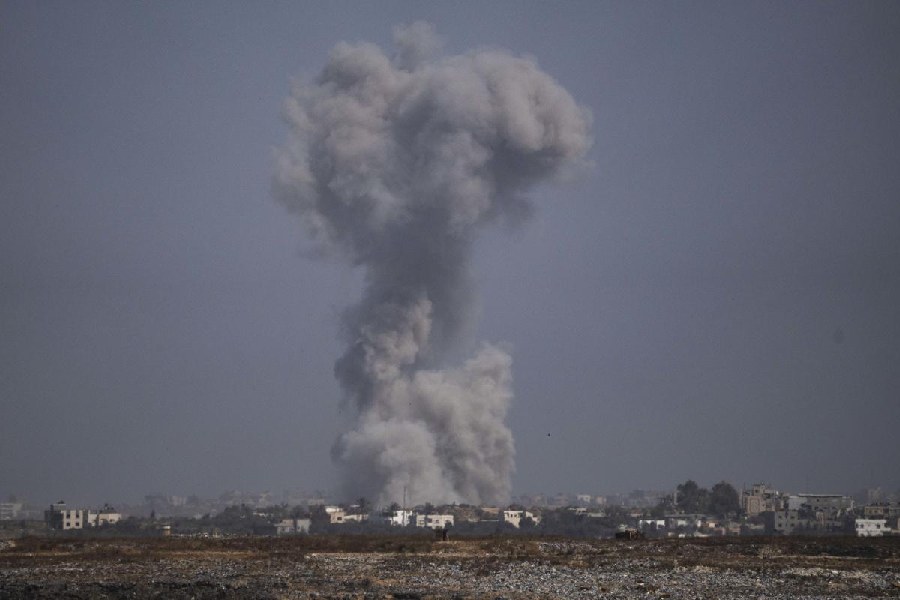Despite an international court order to stop its assault on Rafah, Israel says it will continue its operation, trying to walk a line between not angering its U.S. allies too much while trying to achieve strategic aims that it considers too important to abandon.
For now, after many weeks of admonitions from the White House, both Israel and the United States are characterising this as a “limited operation,” allowing the Israelis to proceed, though more slowly and cautiously than they had in other parts of the Gaza Strip.
But as the fighting pushes masses of panicked civilians toward areas near the sea with inadequate housing or medical aid, and the closing of the Rafah border crossing dims hope for speedy delivery of humanitarian aid, Israel’s critics abroad condemn the toll on civilians and are unconvinced by what the Israelis have called restraint.
On Friday, the International Court of Justice ordered Israel to immediately halt its offensive in Rafah, saying it endangered the civilian population there, but did not call for a complete cease-fire. Israel says it will not halt its military operation.
For Israel, taking Rafah and the border would effectively complete the reconquest of Gaza and could mean a move to a different phase of lower-intensity raids. Rafah has in and under it the last four relatively organized Hamas battalions, a major tunnel infrastructure and rocket launchers, the Israelis say. More important, Israel wants to try to seal the border with Egypt to reduce the smuggling of weapons for the future.
“The airstrikes are continuous and intense, and the smell of smoke doesn’t leave the air,” said Mohammad al-Masri, 31, an accountant who has been sheltering in a tent in Rafah for months. “At night, they advance a few meters at a time, and the people flee immediately.”
He spoke from western Rafah, where residents and other Gaza civilians who took refuge there have not yet been ordered by the Israeli military to leave. Even so, all around him many of the tents that had been sheltering families for months are gone as people have fled elsewhere. “They shoot and bomb us constantly,” he said, “but what scares us the most are the drones.”
Israel’s military aims remain unaltered, however. It wants to secure the entire border with Egypt, destroy the smuggling tunnels that had fortified Hamas, dismantle the last Hamas battalions, bring its remaining hostages home and break Hamas’ administrative control over all of Gaza.
After months of delays, as negotiations over a cease-fire and a limited hostage exchange ebbed and flowed, Israel has put five brigades (an estimated 10,000 troops) into the operation, the military has said.
Israeli troops have concentrated initially on securing the border, which is lightly populated, circling around Rafah city and pressing the nearly 1 million people displaced from other parts of Gaza to move to areas that are supposed to be safer but where conditions remain dire.
Pushing slowly from the east, the Israeli military said Thursday that troops were fighting in the neighborhoods of Brazil, near the border, and Al-Shaboura refugee camp, their deepest penetration into Rafah. But they insist that they have not yet tried to enter the central city, which in normal times has a population close to 1 million people.
Analysts say the anger and warnings from the Biden administration and other close allies of Israel have had an effect in moderating Israeli tactics, even if the assault remains devastating.
In interviews, officers who have just left the fighting in Rafah say that Israel is moving more deliberately and that it is using less air power and artillery, and fewer, smaller bombs, forcing Israeli soldiers to engage in urban guerrilla warfare with Hamas fighters.
With the U.S. insisting that Israel evacuate civilians as much as possible from planned zones of operation, in the past two weeks, as many as 1 million panicked civilians have moved west toward the sea and safer areas, even if facilities to house, feed and care for them are inadequate.
An Israeli officer in the reserves, who has just returned from southern Gaza and is not authorized to speak to the news media, said that the military was using noticeably less air bombardment, and that troops were advancing slowly west in a pincer movement, with one division working near the border and the other moving into Rafah’s outskirts.
The Biden administration had refused to support Israel’s move on Rafah unless it saw a credible plan to evacuate and protect civilians. Jake Sullivan, the national security adviser, said after his trip last weekend to Israel that, so far, the Israeli army was not violating American red lines in Rafah.
“What we have seen so far in terms of Israel’s military operations in that area has been more targeted and limited, has not involved major military operations into the heart of dense urban areas,” Sullivan said. “We now have to see what unfolds from here. We will watch that, we will consider that, and we will see whether what Israel has briefed us and what they have laid out continues or something else happens.”
Israel insists it has heeded U.S. criticism and is trying to warn civilians to move out of the way of the fighting. But even if the civilians are not in the line of fire, the threats to them remain grave with little or no aid crossing from Egypt.
Israel seized the Rafah crossing in what it said was a limited operation against Hamas, effectively closing it. Israel has said it would like to reopen it, but its move on Rafah was not sufficiently coordinated with Egypt, which has demanded that Israel abandon its attack and pull back from the crossing before it can be reopened.
The New York Times News Service










